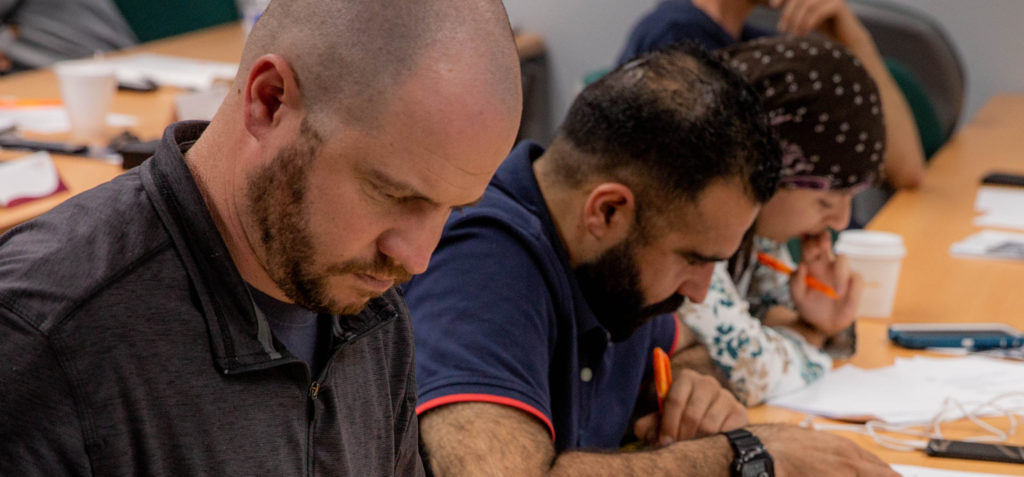
Time is hard to come by, especially if you’re working a full-time job or being a parent, and reading 30+ pages of training materials can feel agonizing. If you’re like us and have found yourself re-reading the same paragraph over and over again, you’re not alone.
Follow these classroom and study hacks to help you feel prepared for your next class.
Practice active reading
The Learning Center at UNC says you should always read with a purpose. To start, skim through all the headers featured in the chapter, and identify sections that are most relevant to your upcoming coursework. After you have a solid background on the chapter topics, write down a few questions you hope to have answered by the end of the reading. This way, you’ll read with topics at the front of your mind and know when to jot down key words and ideas.
Exercise your body to exercise your mind
Did you know exercise can help increase your reasoning, memory and decision making? It’s true! Make the time to go for a walk, lift some weights or take an exercise class to help stimulate your brain to better process your training materials.
Writing down notes increases brain activity and memory
Jotting down notes with pen and paper significantly improves your ability to remember information and key takeaways, all of which make the time you spend reading more worthwhile. A research study divided 48 students into two groups: online notes and paper notes. The handwritten notetakers were found to have significantly higher frontal brain functioning compared to the online note takers, which contributed to higher retention.
Summarize your readings
Writing a quick reading summary (250 words or less) that outlines what you learned and references your reading goals can also help you maximize the fruits of your labor. Think about including examples that stuck with you or confusing concepts that might be better explained in class. And it’s perfectly OK if your reading summary is full of questions. A strong list of questions means you were critically thinking about the content and applying it to your course.
Looking for more study tips and resources to help make going back to college easier on your life and mental health? Talking with a FastForward career coach is a great place to start. Sign up to have a conversation today.